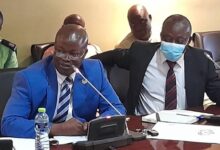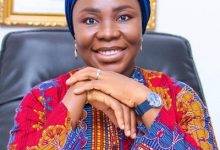Yesterday, 259 out of 261 Metropolitan, Municipal and District Assemblies (MMDAs) across the country were inaugurated after elections to those assemblies were held last December, following the expiration of their terms.
Nkoranza North and Nkoransa South in the Bono East Region were not part of the inauguration because they had their elections in 2021 instead of 2019, in which case their terms would have expired in 2023.
The District Level Elections have been held every four years since 1988 and take place a year before the Presidential and Parliamentary elections.
The MMDAs have become sine qua non on the political landscape of the country because of their functions, which can be captured collectively as seeing to the overall socio-economic development of their jurisdictions.
For instance, they formulate and execute plans, programmes and strategies for the effective
mobilisation of resources necessary for the overall development of the district.
In terms of politics, we can say the MMDAs, as well as their unit committee offshoots are avenues to whip up the interest of people in politics as an indispensable part of the development of their local communities and the nation at large.
They also ensure political inclusiveness in a way, which why we were happy when the Minister of Local Government, Decentralisation and Rural Development, Dan Botwe, told the media ahead of the inauguration that the government was determined to ensure that majority of the 30 per cent of government appointees to the MMDAs would be women and people living with disabilities (PWDs).
We would grateful if the government paid heed to this resolve otherwise the public must know why.
Either these special people refused the appointments or the government gave an empty promise.
As part of the inauguration, representatives of the President Nana Addo Dankwa Akufo-Addo delivered his inaugural address.
The President urged assembly members to acquaint themselves with all the relevant laws on local governance to avoid conflicts with key stakeholders in their localities, including the District Chief Executive, traditional authorities, religious leaders and other key stakeholders in the localities.
The essence of this is to build good working relationships with all the stakeholders to enhance cooperation between the stakeholders to drive development.
We hope the assembly members and even unit committee members would heed the advice because oftentimes some assembly members become full of themselves and cause trouble.
The districts need development, not strife that eventually undermines development.
Some of the districts are highly under-developed and so we like to urge the assemble members to identify the loopholes that readily come to them and help plug them.
Sometimes it is difficult to accept that the assemblies are living by their mandate.
For instance, improper spatial planning is a huge problem which we expect the new assemblies to tackle to ensure free movement of people and vehicles and environmental beauty.
As we have already said, the MMDAs and their associated unit committees are training grounds for participation in politics in the country.
We know some Members of Parliament (MPs) who were motivated by their being former assembly members.
It is our hope that the new assemblies would bring significant change to bear on the development of their jurisdictions and the entire country.



